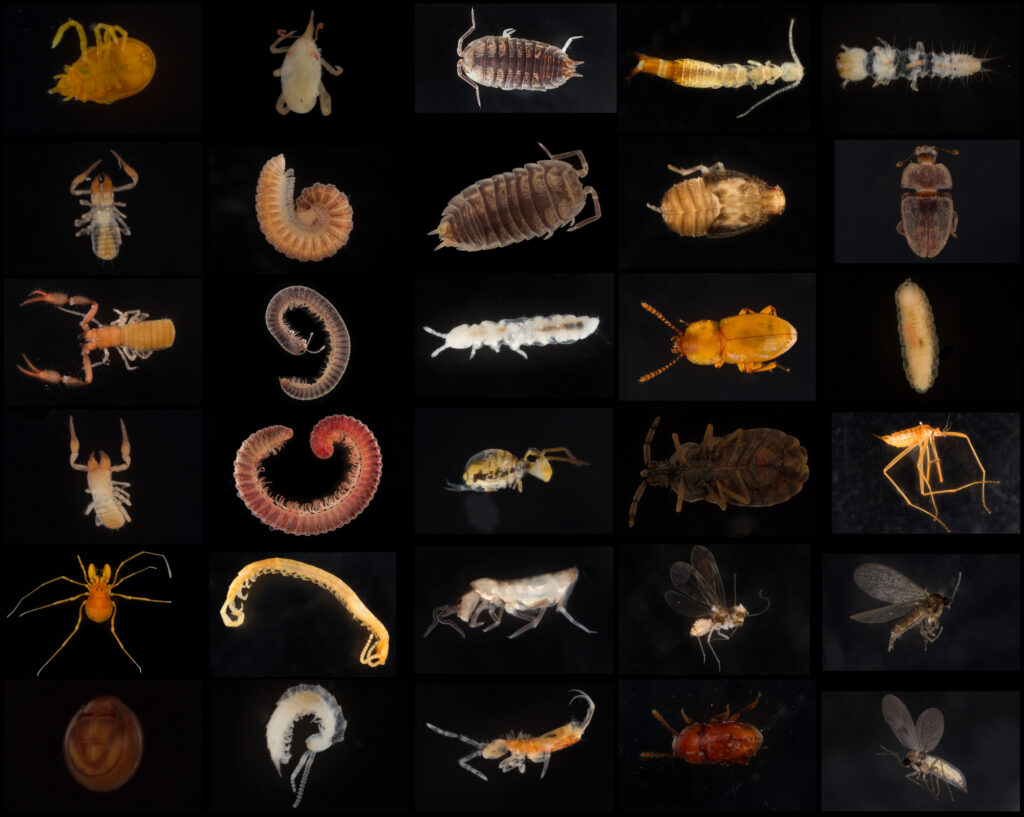Join the Marek Lab at Virginia Tech studying the diversity of soil arthropods in California
For 2025, we seek a master’s student to collaborate on a California Institute for Biodiversity supported project investigating the soil arthropod diversity in California.
This project seeks to discover and document arthropod diversity of shallow subterranean habitats (SSH) in California, accomplishing the following objectives: (1) survey subterranean arthropods in unexplored soil/MSS habitats of California, (2) deposit thousands of specimens of arthropods in museums, and (3) share data online in repositories that follow F.A.I.R. standards (data will be free, accessible, interoperable, and reusable). More about the sampling methodology is here: Harrison et al. 2024: https://doi.org/10.3897/subtbiol.49.128521).
Opportunities are also available to study the taxonomy and systematics of millipedes, including local Californian species. We provide competitive pay with a graduate research assistantship of $34k plus tuition and benefits. A start date in the Spring 2025 semester is preferred.
We also seek undergraduate students to help with sampling in California. We provide undergraduate students with wage employment, and pay for their travel including lodging, flights, and a per diem. During the fieldwork, a visit to the famed bioluminescent millipedes of California will take place. Modern laboratory facilities are available in the Millipede Lab for molecular- and morphology-based taxonomy. A vast insect and millipede collection is also available (https://collection.ento.vt.edu/). We encourage interested students to send a letter expressing your interest, including your curriculum vitae, by email to Paul Marek by 21 October 2024 (or earlier) for graduate student applicants, and 8 November 2024 for undergraduate students.
Visit our websites for more details, https://millipedes.ento.vt.edu/ and https://www.ento.vt.edu/ Guidelines for applying to Virginia Tech’s Graduate School can be found at: https://graduateschool.vt.edu/admissions/how-to-apply.html
Our philosophy is that the natural world is fascinating, and should be protected. We encourage the study of natural history and collections based research. We honor and affirm the rights of all participants to a safe and inclusive work environment. Participants will be trained to identify what composes a safe and inclusive work environment and the actions and conditions that impinge upon this environment.
Of the 4-6 million arthropod species estimated to live on the planet, taxonomists have described only about one million species—barely scratching the surface on the amazing biological diversity around us. Surprisingly, much of this biodiversity is in our own backyards in the United States. For example, we have described more than one hundred new species of millipedes from across the planet. This includes a new record-setting species of millipede with 1,306 legs, Eumillipes persephone, from Western Australia. Important as detritivores in terrestrial ecosystems, primary knowledge of millipede diversity, and other soil dwelling arthropods, lags tremendously behind other animal groups.
A central mission of our research is the exploration and description of biodiversity, especially millipede species. Taxonomic research is significant because it supports the description of Earth’s biological diversity. Although preserving species diversity is critical to the environment and society, we are losing species to extinction at a staggering rate.
Blacksburg, VA offers an abundance of outdoor activities including mountain
biking, caving, rafting, and hiking—https://vt.edu/campus-life/discover-blacksburg.html


